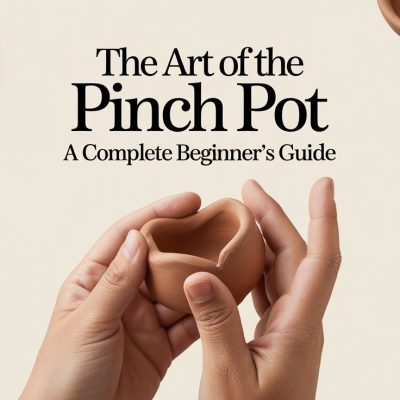Introduction
If you’ve ever watched a Spanish movie, overheard a lively conversation in Madrid, or stumbled across Latin American music lyrics, chances are you’ve come across the phrase “puta madre.” At first glance, it sounds aggressive, even offensive. But here’s the fascinating part: depending on the context, it can mean something terrible or something absolutely amazing.
So, what does “puta madre” really mean? Why is it used so often, and why do native speakers laugh, smile, or even get angry when they hear it? Think of it like a double-edged sword—just as a knife can slice bread or cause harm, this phrase carries both negative and positive meanings depending on how and when it’s used.
In this article, we’ll break down everything about puta madre: its literal translation, slang variations, cultural context, and examples of use in everyday speech. By the end, you’ll clearly understand the full depth and meaning of this vivid Spanish expression.
What Does “Puta Madre” Literally Mean?
When taken literally, puta madre translates to ‘whore mother’ in English. On paper, it sounds deeply offensive. In everyday use, the phrase is seldom intended as an insult toward someone’s mother. Instead, the phrase has evolved into a powerful slang term used to express strong emotions, whether good or bad.
The Dual Nature of the Phrase
One of the most intriguing things about puta madre is its dual nature. It can mean:
- Something amazing—similar to saying “That’s awesome!”
- Something awful—like saying “That sucks!”
This flexibility makes it both tricky and fascinating. Its meaning depends greatly on the speaker’s tone, gestures, and the surrounding context.
Historical Origins and Evolution
Like many slang expressions, puta madre has roots in old Spanish insults. Over time, what began as a curse transformed into everyday street language. Much like how the English word “bad” once only meant negative but later evolved into slang for “cool,” puta madre took on new shades of meaning.
Positive Uses of “Puta Madre”

Despite its harsh literal translation, the phrase can actually express joy, excitement, or approval. For example:
- La fiesta estuvo de puta madre. → “The party was amazing.”
- Ese coche es de puta madre. → “That car is awesome.”
In these cases, it works as an enthusiastic compliment. Think of it as the Spanish equivalent of saying “super cool” or “freaking awesome.”
Negative Uses of “Puta Madre”
On the flip side, puta madre can also reflect anger, frustration, or disappointment. For example:
- ¡Qué puta madre! → “What a nightmare!”
- Se fue todo a la puta madre. → “Everything went to hell.”
Here, it acts as an expletive, much like the English phrase “goddamn it.”
Regional Differences in Meaning
Spanish is spoken in more than 20 countries, and slang varies widely. While Spaniards often use puta madre in casual conversation, in some Latin American countries, it may be considered more vulgar.
- Spain: Used casually in both positive and negative contexts.
- Mexico: Often considered harsher, more offensive.
- Argentina: Understood, but not as commonly used.
This is why non-native speakers should be cautious before dropping it in conversation.
How Spaniards Use It in Daily Life
In Spain, it’s common to hear “puta madre” among friends, especially young people. It can pop up when someone talks about a great meal, a frustrating traffic jam, or a thrilling football match. The phrase is deeply ingrained in Spanish street talk and is less taboo than outsiders might think.
Latin American Perspectives

Across Latin America, the expression often holds a stronger and more intense connotation. Some regions treat it as a heavy insult, while others use it sparingly to emphasize frustration. For example, in Mexico, it’s more insulting and is rarely used in polite company. Context and audience are key.
Examples in Pop Culture and Music
Spanish and Latin American music, movies, and series often feature “puta madre” to reflect real, raw emotions. From reggaeton lyrics to urban films, the phrase captures authenticity and relatability. Artists sometimes use it to connect with audiences, though censorship rules may blur or mute the words.
Politeness, Etiquette, and Risks
Because it includes the word “puta” (whore), the phrase is not polite. Using it with strangers, elders, or in professional settings could come across as highly disrespectful. It’s best reserved for casual conversations with close friends who understand your intent.
Similar Expressions in Other Languages
Languages worldwide have similar expressions that sound offensive but can also mean something positive depending on context:
- English: “Badass” or “That’s sick.”
- French: Putain! (also both positive and negative)
- Italian: Che figata! (means “How cool!” but can sound rough)
These parallels show how slang often evolves beyond literal meaning.
Should You Use “Puta Madre”? A Practical Guide

If you’re learning Spanish, you might be tempted to use puta madre because it sounds authentic. But here’s a simple rule of thumb:
- Yes: When joking with Spanish friends who use it themselves.
- No: In formal, professional, or unfamiliar contexts.
Think of it like swearing in English—you wouldn’t say it at a business meeting, but with close friends, it might make you sound more natural.
FAQs
1. Is “puta madre” always offensive?
No, not always. While the literal words are offensive, in everyday Spanish, they can mean something positive like “awesome.”
2. Can I say “puta madre” in Mexico without offending people?
It’s risky. In Mexico, the phrase is more offensive than in Spain, so it’s best to avoid using it unless you’re sure of the context.
3. What’s the safest way to express excitement instead of saying “puta madre”?
You can use alternatives like ¡genial! (great), ¡increíble! (incredible), or ¡fantástico! (fantastic).
4. Do native speakers use “puta madre” with their families?
Rarely. It’s more common among friends or in informal groups. Using it with parents, teachers, or elders might be seen as disrespectful.
5. Are there polite versions of “puta madre”?
Not directly, but words like “estupendo” (wonderful) or “maravilloso” (marvelous) express the same enthusiasm without sounding rude.
Conclusion
The phrase “puta madre” is one of those linguistic gems that perfectly shows how language evolves and adapts. It started as an insult, transformed into slang, and today carries a fascinating double meaning. Depending on the context, it can be the ultimate compliment or the ultimate curse.
For language learners, it’s a reminder of how colorful, flexible, and dynamic Spanish truly is. Just remember: context is everything.










